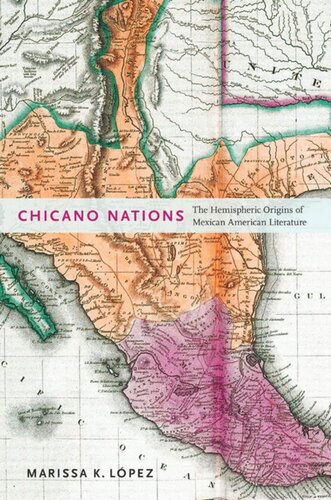

Most ebook files are in PDF format, so you can easily read them using various software such as Foxit Reader or directly on the Google Chrome browser.
Some ebook files are released by publishers in other formats such as .awz, .mobi, .epub, .fb2, etc. You may need to install specific software to read these formats on mobile/PC, such as Calibre.
Please read the tutorial at this link: https://ebookbell.com/faq
We offer FREE conversion to the popular formats you request; however, this may take some time. Therefore, right after payment, please email us, and we will try to provide the service as quickly as possible.
For some exceptional file formats or broken links (if any), please refrain from opening any disputes. Instead, email us first, and we will try to assist within a maximum of 6 hours.
EbookBell Team

5.0
70 reviewsPart of the American Literatures Initiative Series
Chicano Nations argues that the transnationalism that is central to Chicano identity originated in the global, postcolonial moment at the turn of the nineteenth century rather than as an effect of contemporary economic conditions, which began in the mid nineteenth century and primarily affected the laboring classes. The Spanish empire then began to implode, and colonists in the “new world” debated the national contours of the viceroyalties. This is where Marissa K. López locates the origins of Chicano literature, which is now and always has been “postnational,” encompassing the wealthy, the poor, the white, and the mestizo. Tracing its long history and the diversity of subject positions it encompasses, Chicano Nations explores the shifting literary forms authors have used to write the nation from the nineteenth to the twenty-first centuries.
López argues that while national and global tensions lie at the historical heart of Chicana/o narratives of the nation, there should be alternative ways to imagine the significance of Chicano literature other than as a reflection of national identity. In a nuanced analysis, the book provides a way to think of early writers as a meaningful part of Chicano literary history, and, in looking at the nation, rather than the particularities of identity, as that which connects Chicano literature over time, it engages the emerging hemispheric scholarship on U.S. literature.